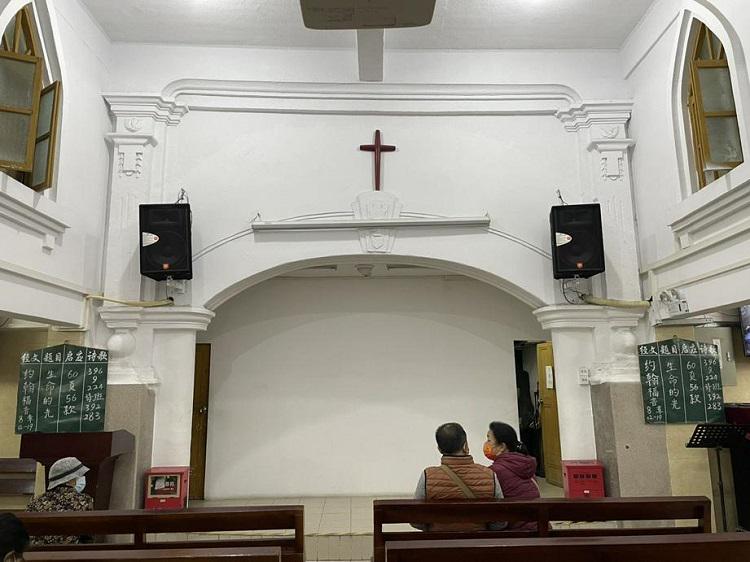Pastor Ding has been serving in a city in East China for many years. Early in the pandemic, he noticed that church members were once infested by heretical groups such as the Eastern Lightning, the hyper-grace gospel, the "Discipleship Home Network” online platform, and Shincheonji.
For example, the heretical Shincheonji Church of Jesus from South Korea sends posters to WeChat groups in China, inviting people to join their online Bible classes. Another example is that some orthodox churches have issued announcements against the "Ministry of Repentance and Holiness Church" founded by Kenyan self-proclaimed Prophet David Owuor. The so-called ministry explains the Old Testament's Passover and advocates that each person should become a Nazirite. It has attracted many young university students in China, spreading their message through gospel tracts.
During the pandemic, Chinese churches couldn't hold in-person gatherings, leaving many believers spiritually deprived. To prevent heresies, Ding trained the small group leaders to explain and provide training on how to guard against heresies. The congregation would report any encounters with heresies to Ding, keeping him informed about groups that required caution.
Pastor Cui, serving in a city in Central China, also faces challenges from the prevalence of heresies, especially Shincheonji.
"Shincheonji has advanced brainwashing techniques," Pastor Cui said. "Shincheonji’s tactics are similar to other heresies, and many believers have weak discernment. With a strict system, Shincheonji provides excellent service, following up intensively online."
Cui believes that hierarchical systems are essentially pyramid schemes. MLM organizations cheat people through high returns, whereas some heresies lure believers with limited atonement. Employing certain tactics, a cult organization claims that only 144,000 people can be saved and that Christ is coming soon; warning Christians that if they don't strive hard, they won't be saved.
He stated that the alarming point is that university students are often the most easily brainwashed group, due to their lack of social experience and discernment abilities.
Pastor Cui knew of a believer who once fell into heresy. At that time, this believer was new to the Christian faith and had a shallow understanding of the truth. However, using his social experience, he sensed something "off" about the atmosphere there and left.
Additionally, social indifference also makes believers more susceptible to heresies. Nowadays, many young people often don't want to get married or date, which provides an opening for heresies that cater to emotional needs. Heresies always employ a dual approach of emotional and doctrinal appeal.
Heresies often attract those who need emotional care and those who are serious about the truth. "It's good for believers to love learning, but it can be troublesome if they are too serious about the truth when heresies beguile them," Cui said. "For example, some people constantly worry about their salvation, questioning who is the most genuine and orthodox. Despite the Reformed Church's serious attitude towards truth, it can't match the heresies’ meticulous dedication. Heresies often have dedicated young personnel who spend a lot of time on this." Because they have a large number of young people, heresies are very active and "outstanding" on diverse online platforms, with advanced technology as well.
To prevent believers from falling into heresies, Pastor Cui claimed that it is the key to raising believers’ general knowledge. "For example, we need to help believers develop a deeper understanding of ecclesiology. The church is a visible entity where people gather together. The hallmark of Shincheonji is gathering believers online to carry out training sessions without real relationships. Yet, believers often know nothing about those teachers, their professions, or their training backgrounds," he explained.
He added that many church members lack social common sense and don't seek to understand the other party's information. Even within the church, members would know about the pastor’s birthplace, faith journey, work experience, and family members.
Pastor Cui said, "Relationship building happens through face-to-face meetings and interactions, whereas heresies mainly brainwash people through one-on-one care and salvation panic."
Cui continued, "Heresies' tactics are actually similar, such as deifying the leader, doomsday narratives, and intense brainwashing. There's nothing new. The issue arises when we tend to focus on more important things, like doctrines, while neglecting basic points—such as knowing nothing of the person with whom we have important connections."
"You are ignorant if you don't know the other person's background but blindly entrust everything to them," Pastor Cui concluded.
- Translated by Abigail Wu












